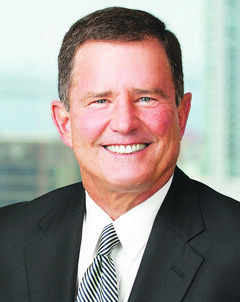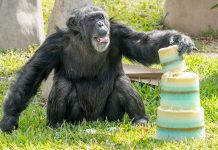|
Getting your Trinity Audio player ready...
|

Oh, woe is us!
Every 2020 compendium bemoans the “worst year” ever. Clearly, the enormous loss of life, the complete disruption of daily routines, and the ravages of massive job losses leading to widespread poverty and hunger are unlike anything seen since World War II. But, in the course of history, there have been many apocalyptic challenges confronting humanity — e.g. the Spanish flu pandemic, world wars, civil wars, disease and famine.
During each of those calamitous events and, perhaps, for a short while after they ended, people thought that life was the worst it had ever been or could possibly ever be. And then, just as suddenly (in hindsight) the despair was gone. Life returned to the way it had been before calamity struck. Of course, new ways of living, learning and working discovered during the bad times — and possibly a few lessons learned — yielded change, adaptation and sometimes even progress.
This time will be no different. Within one year, most people will be proudly telling and re-telling their own pandemic stories about their ability to have endured. And, of course, the war stories will improve with age as millennials ultimately tell their grandchildren about the bad ol’ days of 2020 when every day was a struggle to survive their own personal challenges as a “frontline hero.” For a while, we will increase our stockpiles of PPE and otherwise enhance our national emergency preparedness. The return to the life we knew will bring enhanced focus on, and funding for, medical research, particularly related to knowledge derived from vaccine development. Human beings can finally rebound from their isolation and fear with a renewed sense of commonality and society.
This heightened awareness and sensitivity will produce policies and programs to promote
diversity and to ameliorate and limit systemic racism. But it will be hard. Each person has their own unique makeup with each characteristic residing on a spectrum of opposites: those invulnerable to fear, hurt feelings and stress, and those with skin thinner than a micron; the Pope and the atheist; the workaholic and the lazybones; the coordinated athlete and someone who must sit to put pants on; the voices with perfect pitch and singers who sound awful even in the shower; the introvert and the extrovert; the book nerd and the street smart drop out. And everything in between. Thus, it is little wonder that people have trouble playing with others in the sandbox. Figuring out the right combination to promote healing among us takes time, interest and much thought.
Society is supposed to even the playing field by establishing acceptable norms to regulate
human behavior and, to the limited extent possible, influence people’s thoughts. This is
typically accomplished by government officials enacting laws, and civic, social and religious
institutions setting the example for how we should live, work and play with others. In 2020, with the perfect storm of the pandemic, the war for social justice and – well — Trump, those legal and societal influences have been distorted, if not vitiated. If you add in the explosion of informational content – where everyone can obtain validation for any conceivable belief or opinion – it is no wonder that foreigners call us the Dis-United States of America.
And when leaders (of any stripe) demonize the opposition, much less condone or even
encourage violence in pursuit of their purportedly just cause, then the haters’ thoughts
become actions, putting the personal safety of people, perhaps many of them, at risk. The rule of law is the last barrier to anarchy. But in 2020, even the rule of law has been denigrated and ignored. The foundation of our democracy has been under siege. To their credit, the judicial branch of government has stood strong against immense political pressure and we should be grateful to, and honor, our nation’s judges for so artfully and effectively securing our democracy.
The proverbial dark clouds should part in the next few weeks and months to once again reveal the sun, which can always be trusted to rise and shine after the darkness. And then, we will once again dance silly in the sun and our souls will feel reborn. Let us make hindsight truly “2020” and get the party started again!
Alan Rosenthal is a native Miamian and an attorney at Carlton Fields where he is a member of the firm’s National Trial Practice.





